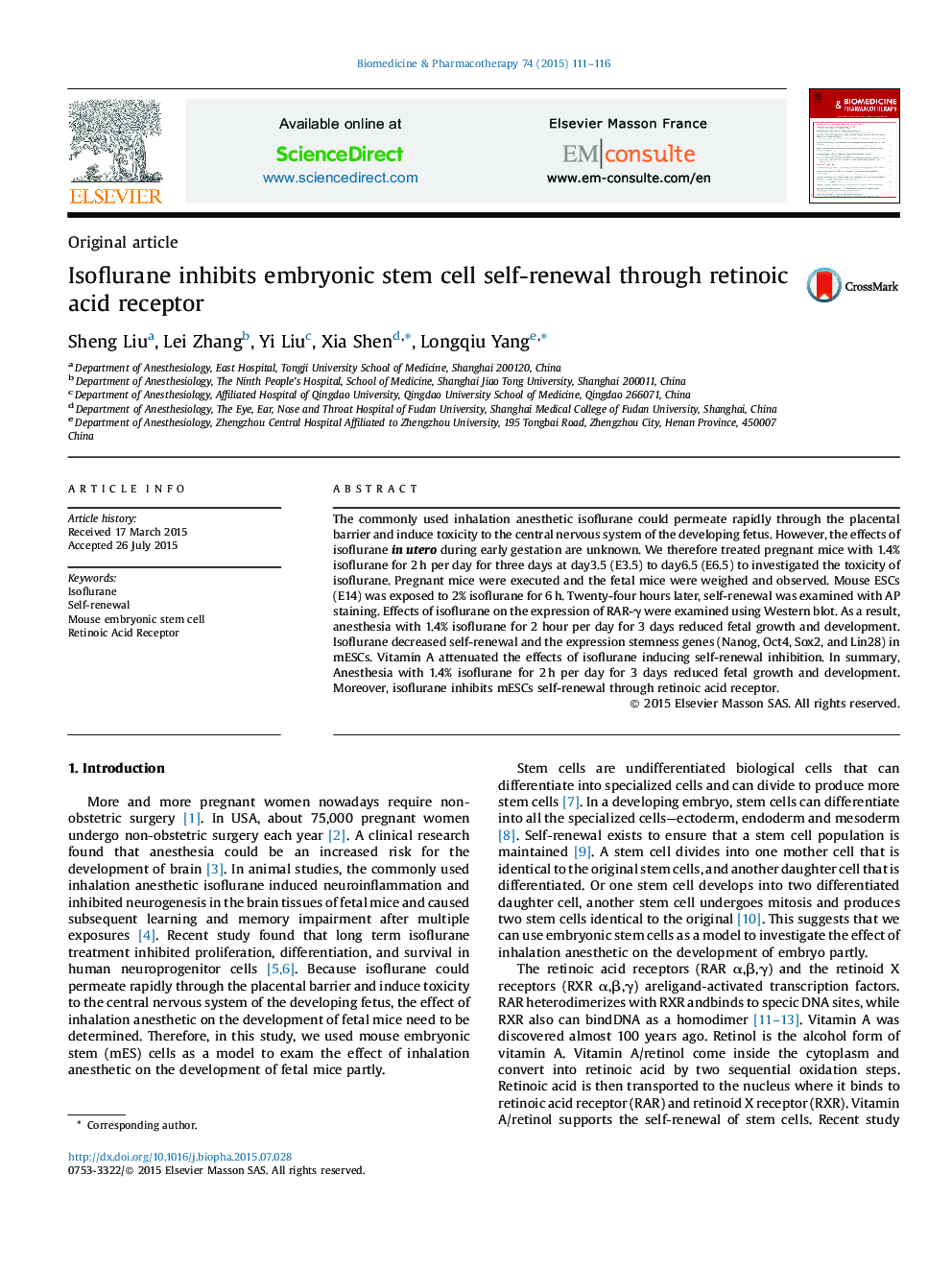| Article ID | Journal | Published Year | Pages | File Type |
|---|---|---|---|---|
| 2524953 | Biomedicine & Pharmacotherapy | 2015 | 6 Pages |
The commonly used inhalation anesthetic isoflurane could permeate rapidly through the placental barrier and induce toxicity to the central nervous system of the developing fetus. However, the effects of isoflurane in utero during early gestation are unknown. We therefore treated pregnant mice with 1.4% isoflurane for 2 h per day for three days at day3.5 (E3.5) to day6.5 (E6.5) to investigated the toxicity of isoflurane. Pregnant mice were executed and the fetal mice were weighed and observed. Mouse ESCs (E14) was exposed to 2% isoflurane for 6 h. Twenty-four hours later, self-renewal was examined with AP staining. Effects of isoflurane on the expression of RAR-γ were examined using Western blot. As a result, anesthesia with 1.4% isoflurane for 2 hour per day for 3 days reduced fetal growth and development. Isoflurane decreased self-renewal and the expression stemness genes (Nanog, Oct4, Sox2, and Lin28) in mESCs. Vitamin A attenuated the effects of isoflurane inducing self-renewal inhibition. In summary, Anesthesia with 1.4% isoflurane for 2 h per day for 3 days reduced fetal growth and development. Moreover, isoflurane inhibits mESCs self-renewal through retinoic acid receptor.
